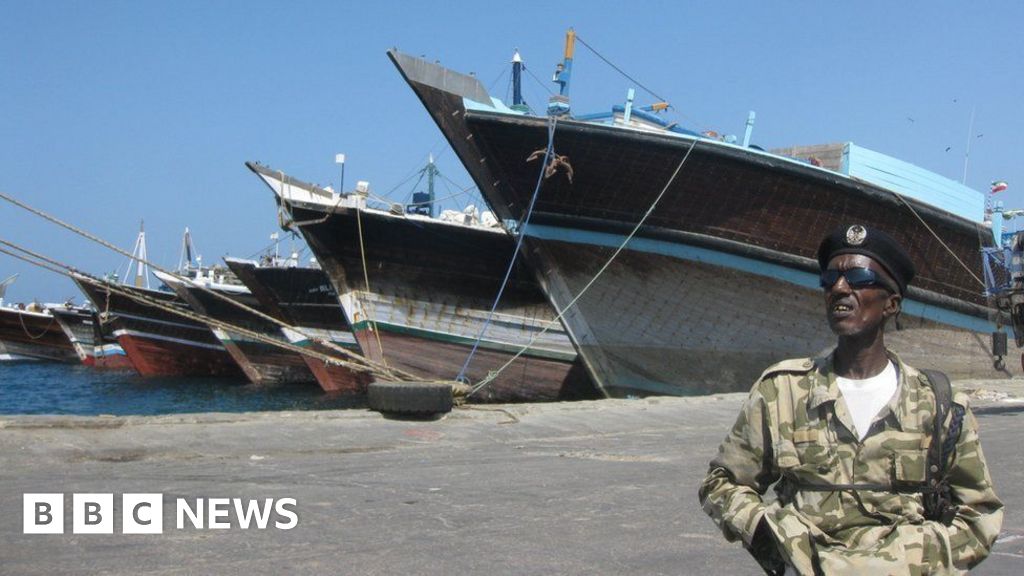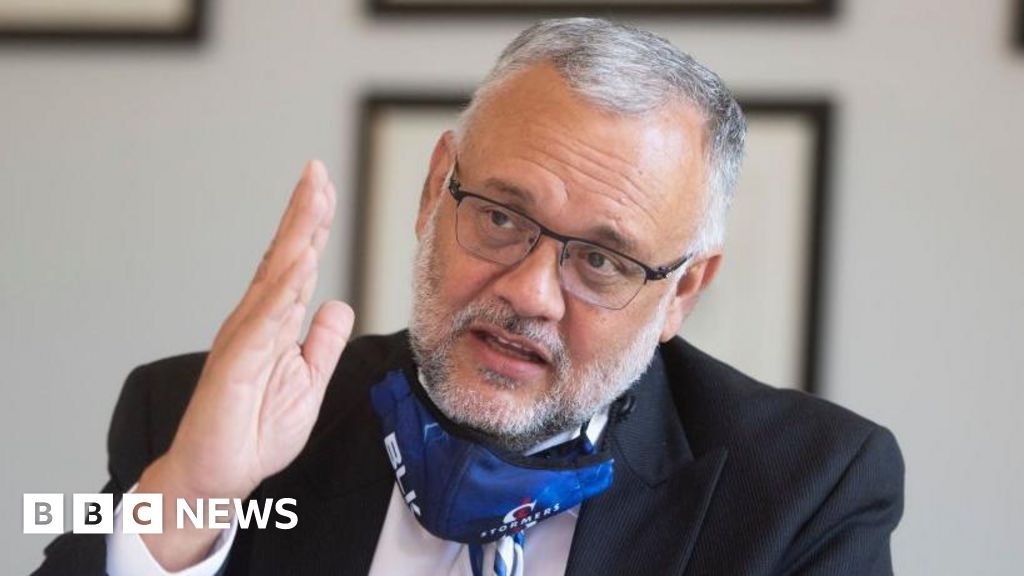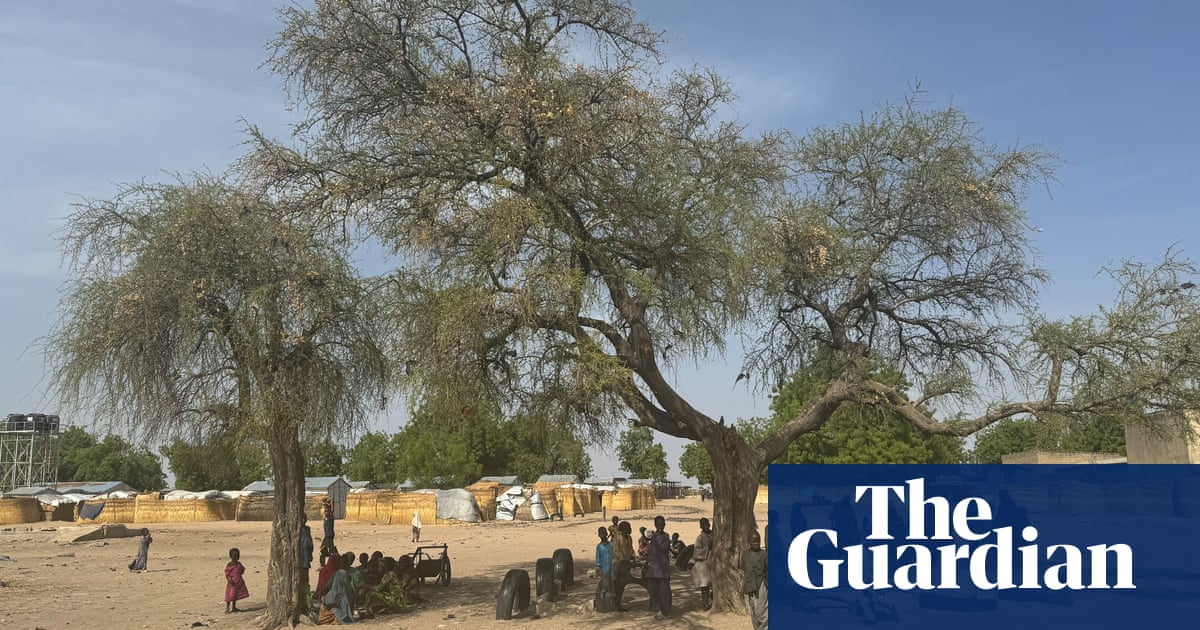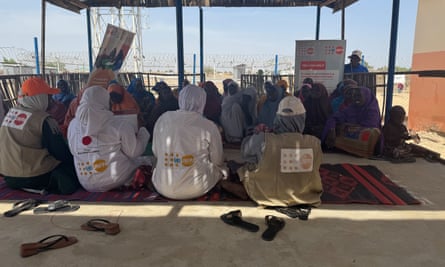Some State Department officials have proposed closing the embassy in Mogadishu, the Somali capital, as a precaution after recent gains by Al Shabab militants.

www.nytimes.com
Trump Team Divided Over Future of U.S. Counterterrorism Operations in Somalia
Some State Department officials have proposed closing the embassy in Mogadishu, the Somali capital, as a precaution after recent gains by Al Shabab militants.
April 10, 2025
Recent battlefield gains by an Islamist insurgency in Somalia have prompted some State Department officials to propose closing the U.S. embassy in Mogadishu and withdrawing most American personnel as a security precaution, according to officials familiar with internal deliberations.
But other Trump administration officials, centered in the National Security Council, are worried that shutting the embassy could diminish confidence in Somalia’s central government and inadvertently incite a rapid collapse. Instead, they want to double down on U.S. operations in the war-torn country as it seeks to counter the militant group, Al Shabab, the officials said.
The rival concerns are being fueled by memories of foreign policy debacles like the 2012 attack by Islamist militants who overran the U.S. mission in Benghazi, Libya, and the abrupt collapse of the Afghan government as American forces withdrew in 2021.
They also underscore the broader dilemma for the Trump administration as it determines its strategy for Somalia, a chaotic and dysfunctional country fractured by complex clan dynamics, where the United States has waged a low-intensity counterterrorism war for some two decades with little progress.
The considerations are appearing to pit President Trump’s top counterterrorism adviser, Sebastian Gorka, who has a hawkish approach to using force against militant Islamists, against more isolationist elements of Mr. Trump’s coalition. That group, sick of the “forever wars” that followed the terrorist attacks of Sept. 11, 2001, does not see a major U.S. interest in Somalia.
Last week, Mr. Gorka convened an interagency meeting at the White House to begin to grapple with an approach, according to officials briefed on its findings who spoke on the condition of anonymity to discuss sensitive deliberations. The meeting is said to have ended without any clear resolution.
Sebastian Gorka, President Trump’s top counterterrorism adviser, convened an interagency meeting at the White House to begin to grapple with the administration’s strategy for Somalia.Kenny Holston/The New York Times
Under presidents of both parties, the United States has pursued a policy of propping up Somalia’s weak central government by training and equipping vetted units of its special forces, known as the Danab, and by using drone strikes to provide close air support to them as they battle Al Shabab, which has ties to Al Qaeda.
The policy is intended to lay the groundwork for the Somali government to eventually maintain security on its own. But, just as in places like Afghanistan, that has yet to happen. Conditions have worsened amid reports that some Somali forces have not stood and fought, and as President Hassan Sheikh Mohamud is said to have alienated not only members of rival clans but some of his own supporters.
The National Security Council and the Pentagon did not respond to requests for comment.
A State Department spokesperson said on Wednesday that the embassy in Mogadishu, the Somali capital, “remains fully operational” and that the department “constantly monitors and evaluates threat information and adjusts our security and operating postures accordingly.”
Maureen Farrell, who was the Pentagon’s top Africa policy official in the Biden administration, argued that there can be no purely military solution to Al Shabab. The United States should focus on dangerous hard liners while trying to pull the rest of the group into political settlements, she said.
“If we are thinking about reducing our presence, we should use that potential reduction to press for real progress in our goals,” said Ms. Farrell, who is now a vice president at Valar Solutions, a security consulting firm. “This is a once-in-a-decade chance to credibly say that we’re prepared to leave unless we see big changes.”
For most of his first term, Mr. Trump had escalated military efforts in Somalia, including by easing Obama-era limits on drone strikes. But in his final weeks in office, Mr. Trump abruptly switched gears and ordered most U.S. forces to leave Somalia except for a handful that guarded the embassy.
The military redeployed its forces to neighboring Kenya and Djibouti, but kept rotating them into Somalia for brief visits in continued support of Somali forces that the United States train and equip as partners. In 2022, after military leaders complained that moving in and out of Somalia was needlessly dangerous, President Joseph R. Biden Jr. let the military return to long-term deployments there.
There are currently 500 to 600 U.S. troops in Somalia, according to U.S. Africa Command. The new administration has also carried out several airstrikes against Islamic State elements in northern Somalia.
Several weeks ago, officials said, Al Shabab battlefield advances brought the group close to Mogadishu, prompting concerns about the safety of the U.S. embassy — a fortresslike bunker at its airport. The onset of rainy season has since slowed the fighting, buying some time.
Omar Mahmood, a senior analyst for Somalia and the Horn of Africa at the International Crisis Group, said Al Shabab attacks starting in late February initially caught the government off guard, and the group recaptured some rural village areas that it had lost to Somali national forces two years ago. But he argued that the gains had been somewhat exaggerated and that the group does not currently appear to be focused on Mogadishu.
“The government is certainly struggling — its recently trained army recruits have not fared great on the battlefield and the country is badly politically divided — but the concerns about Mogadishu being captured are overblown,” he wrote in an email. “It is typical in the Somali environment, especially amongst the international partners, that once a few things wrong in a row occur, everyone starts to expect the worst.”
Still, some State Department officials are arguing for closing the embassy and withdrawing diplomatic personnel at a controlled pace, avoiding any need for a sudden emergency evacuation operation, as occurred at the airport in Kabul, Afghanistan, in August 2021.
The State Department is also under pressure to consolidate embassy operations in Africa, so concentrating diplomatic personnel focused on Somalia in some other part of East Africa, like Kenya or Djibouti, would serve that cost-savings goal, officials are said to have argued.
Portions of Somalia have broken off into semiautonomous regions. Another option said to be under consideration is to move some facilities and assets to a Soviet-era air base in one of them, Somaliland. Mr. Mohamud recently offered to let the Trump administration take over air bases and seaports, including one in Somaliland, even though his government does not control that territory, as Reuters reported in late March.
President Hassan Sheikh Mohamud is said to have alienated some of his own supporters as conditions have worsened amid reports that some Somali forces have not fought against Al Shabab, an Islamist militant group.Brian Otieno for The New York Times
At the interagency meeting last week, Mr. Gorka is said to have argued against shrinking the U.S. presence, contending that it would be intolerable to let Al Shabab take over the country and proposing to instead step up strikes targeting militants.
Any changes would raise complicated questions about relations with allies who have an interest in Somalia. Ethiopia, the United Arab Emirates, Turkey and Egypt have forces who have also sought to help keep Al Shabab at bay, and Kenya has been the victim of external attacks by the terrorist group.
Downsizing operations would also raise the issue of whether the C.I.A. could continue to operate a station inside Somalia. In the Benghazi attack, militants not only overran the U.S. mission but also shelled a nearby C.I.A. annex building.
All of those complexities are secondary, however, to a decision about what the U.S. approach to Somalia should be. Essentially, the question is whether to keep doing the same things indefinitely to at least help keep Al Shabab somewhat at bay; significantly escalate strikes against Shabab foot soldiers; or scale down while retaining the ability to carry out drone strikes on particular high-value terrorist targets from more distant bases.
Part of the dilemma is the open question of what it would mean if Al Shabab were to take over more of Somalia — including whether it would be content to simply rule the country or would also conduct external terrorist operations or host terrorist groups that do so.
Al Shabab emerged from the chaotic Somali environment in the mid-2000s and pledged allegiance to Al Qaeda in 2012. On occasion, parts of the group have carried out attacks outside Somalia, including a mass shooting in 2013 at the Westgate shopping mall in Nairobi, Kenya, and an assault in January 2020 on an American air base at Manda Bay, Kenya, after the first Trump administration had stepped up drone strikes targeting the group.
Somalia is across the Gulf of Aden from Yemen, where the Trump administration has stepped up a bombing campaign against Iranian-backed Houthi militants who have been menacing international shipping routes to and from the Suez Canal. In congressional testimony last week, Gen. Michael E. Langley, the head of U.S. Africa Command, said the military has been monitoring signs of collusion between Al Shabab and the Houthis.









